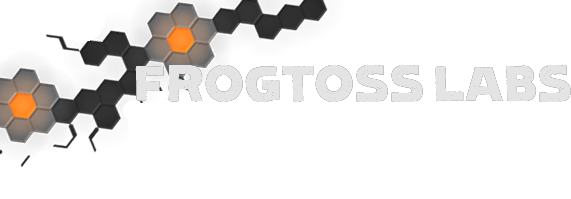
2014: The Year the Internet Jumped the Shark
Tue 16 December 2014
Michael Labbe
#rant
I have been on the Internet for 19 years, and on BBSes for four more before that. This is the first year where I have found myself reflecting on trends and deciding that the Internet is poised to lead its users towards permanent entrenchment in negative experiences and outcomes. The Internet has jumped the shark. It can un-jump, but it won’t in 2015. That’s my prediction, and here’s what you can do about it for yourself.
Let’s assume, for starters, that you are using the Internet to enrich your life in some way: you are here because you want to learn something, meet someone, or make something and share or sell it to people. Sure, there are always cat pictures and all of that cheap entertainment, but that’s not what I’m talking about. I’m assuming you are interested in getting something valuable out of your time using the Internet.
The most disturbing trend we’ve seen on the Internet in 2014 is an uptick in the severity and frequency of harassment of minorities. Gamergate and its response are both bolstered by Twitter, a web service that acts as a leaderboard for mobs: retweets, follower counts, replies and favourites are tracked. Ideas that need more than 140 characters to express are scattered. This damages discourse. You could not ask for an architecture that enhances mob mentality over rational discourse any more than what Twitter provides.
Public places will never be safe places on the Internet. While that is no justification for harassment, complete safety cannot be a technical or customer service solution. If anyone can join and re-join, it is not possible to achieve complete safety. This is history repeating itself as anyone who spent time on IRC or on bulletin boards will attest. Unfortunately, this time the business models of the companies hosting these services depend on growth which can only be achieved through openness. It would appear from the actions of social companies that they believe closed communities do not scale VC-funded businesses or publicly traded companies.
Next up, we have the problem of overdependence on “the cloud” for consumers. Because many companies are primarily offering cloud-based solutions for your data, it has normalized the idea of cloud solutions for many people.
The consumer cloud is, in many cases, a tax on complacency — in some cases, quite literally a fee and in others, a sacrifice of privacy and control over your personal data. It costs more than the price of a 2TB hard drive — which could store many collections ten times over — for the permission to stream your music from Spotify for a single year. Once you’ve paid Adobe $120 a year to store your photos, that’s it — they have you on a plan because they have your photos. All of these services can be replaced by a couple of hard drives and a Synology product. Then you have complete privacy, and you are not at the whim of a huge company whose interests are at cross purposes with yours, at best.
If you told a photographer in 1990 that many of her peers would consider paying a company a yearly fee to hold her own photos in the future, she would look at you very oddly. How dystopic.
The last problem I want to address isn’t particularly new to 2014, but it isn’t getting any better, either. We get our information from social feeds now. Google famously ended Google Reader, asking us to get our news from Google+ instead. Sadly, people don’t use Facebook and Google+ to pass around truly useful information. Nine times out of ten, you get articles that amount to fodder for small talk and dinner conversations. This seriously degrades the utility of what you read on a daily basis.
I target these three problems because they are examples of companies routing us towards a less informative, more troubled Internet. They do it because they are operating at a cross purpose to our own: to scale their customer bases. I expect these assaults on meaningful Internet time will continue and increase in 2015.
You can take the Internet back for yourself. I recommend these three things:
-
Create closed communities; defend the ones you have already. If you run a company, take a stand. Create safe places for like-minded people and keep them that way. A chat window (Skype, Tox) with ten productive, smart people who contribute ideas and talk to each other is more rewarding than a stream of social updates running at cross purposes. Curate new friends from your Internet acquaintances.
-
Host your own data and services. If you have tech know-how, it’s satisfying and fun to take this back. It’s about as hard as setting up a router (read: easy) to buy and use a Synology product and Cloud Station. 10TB of Dropbox-like syncing with complete privacy and no monthly costs, anyone? Run a Subsonic server to stream music to your phone and stereo. Host your own photos for fractions of a penny per shot.
-
Fix your information diet. Start by blocking, hiding and un-following. Disable push notifications for almost all of your apps. If you use Gmail, use filters to suppress all unsolicited emails that make it in your inbox. Now that you’ve cleaned up, it’s time to get back to RSS. Use Feedly or similar. Build your list of blogs back up. Start blogging, yourself. Contribute useful information back.
It’s unrealistic to assume that these companies will change their ways. But you can make your time on the Internet that much more enriching and valuable. The great news is that we still have the computing freedom to sidestep these trends.
